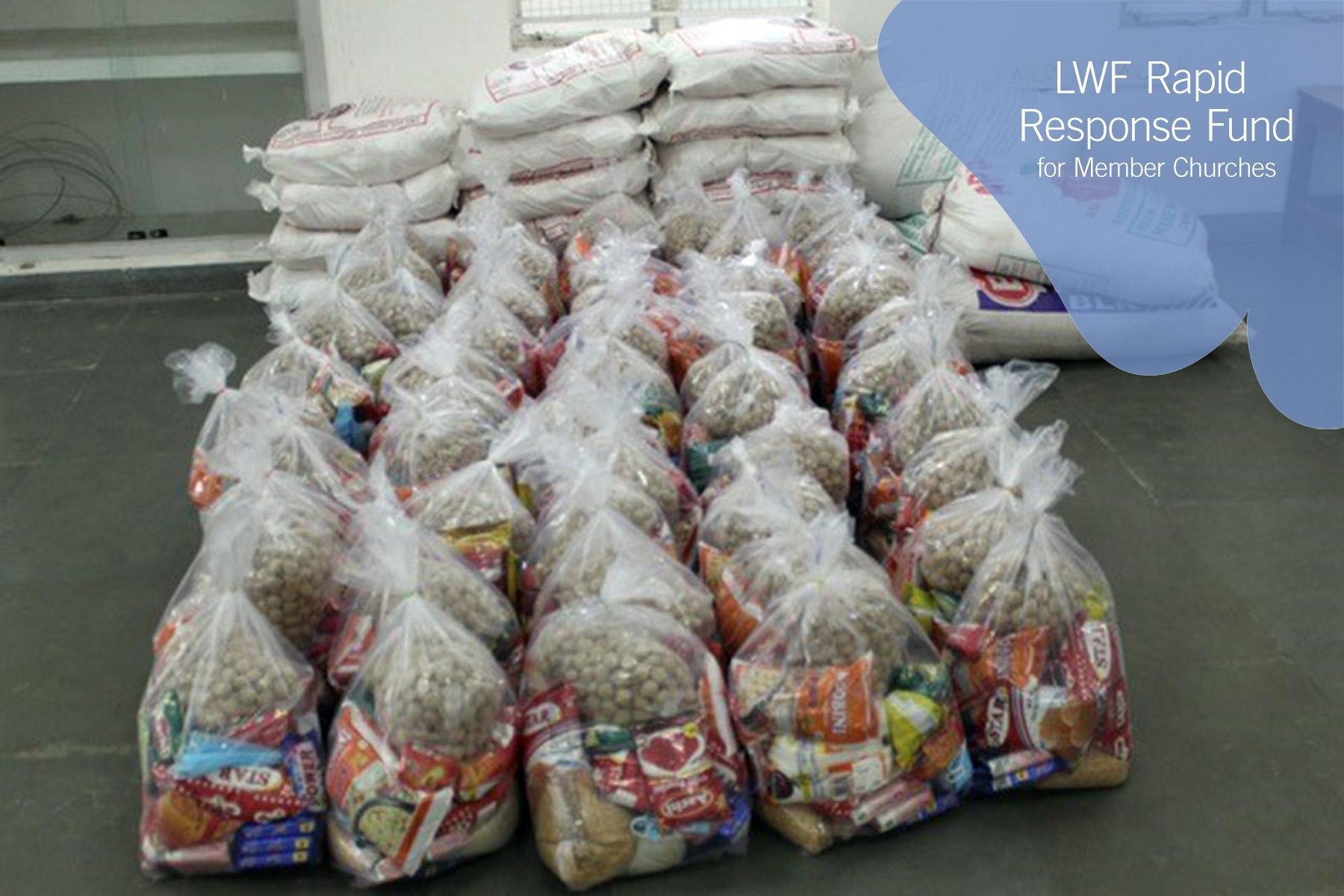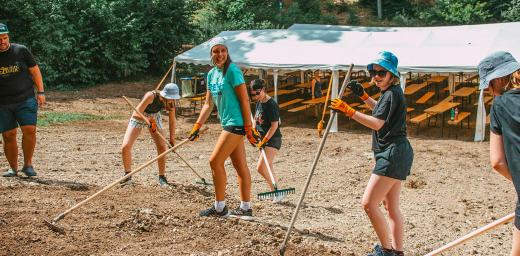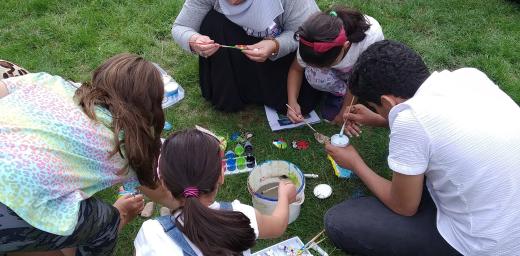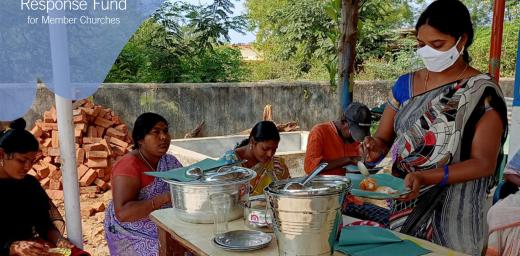COVID-19: Youth “frontline warriors” in relief efforts

Most of the 12 UELCI united churches received approval for funding from the LWF Rapid Response Fund. Photo: UELCI
Rapid Response Fund:Infection rate on the rise in India, Lutheran churches respond
(LWI) - In the fight against the spread of the Coronavirus disease (COVID-19) pandemic, the United Evangelical Lutheran Churches in India (UELCI) found themselves also in a fight against a “social and economic pandemic” when thousands from vulnerable communities faced the reverberations of COVID-19.
The organization that groups Lutheran churches in India responded immediately to disadvantaged populations in the overcrowded areas in the eastern area of Chennai.
Government restrictions prevent the churches from distributing aid in groups, therefore, the issuance of relief packages had to be given door-to-door.
UELCI Executive Secretary Rev. A. Joshuva Peter said the youth played a pivotal role in the diaconal ministry of the church and “like frontline warriors” they delivered provisions door-to-door under the leadership of local parishes and communities. “The involvement of the youth is highly commendable,” he added.
Several of the UELCI churches distributed raw and non-perishable food, sanitation kits and led risk reduction and preparedness programs aimed at slowing the spread of the virus through information and easing the economic suffering felt markedly in these communities throughout the region.
Among those who the youth reached were widows abandoned by their adult children and those in the transgender community. Both groups are ostracized and were already struggling for financial security before the COVID-19 pandemic.
The UELCI commends its churches for their diaconal work during the first and second phase of relief efforts as they move into the third phase. The first stage was categorized as “immediate” response, and the next phases, which the UELCI expects to continue for the next three years, will address the devastating toll that COVID-19 continues to take on society.
Most of the 12 UELCI churches were approved for funding from the LWF COVID-19 Rapid Response Fund (RRF). Recent statistics show over 900,000 COVID-19 infections and nearly 24,000 deaths from the Coronavirus in India. A resurgence in COVID-19 infections has made states that formerly reopened, reinstate lockdowns or extend current lockdown measures.
Migrant Workers remain at risk
In a short video documentary, Joshuva, lamented the added economic and social stress COVID-19 placed on the migrant community. Stuck in limbo with neither home nor work they attempted to walk to their regions in India when COVID-19 restrictions in May closed industries where they typically worked. Migrant workers were quarantined in a stadium in Chennai where conditions were dangerous. Through other partnerships, UELCI was able to assist 5,000 migrant workers early this spring.
There are 140 million internal migrant workers from rural Indian regions who work in the larger cities of India in the manufacturing and construction industries.
Joshuva said the migrant workers, although able to return to jobs when restrictions were partially lifted, still face challenges with fewer available work hours, making possible earnings lower than usual.
The Rapid Response Fund, launched in April, supports many of the communion’s member churches that are particularly vulnerable during the global health emergency. Upon approval of a project application, a church can receive a grant of up to EUR 5,000 from the global fund supported by LWF’s member church partners around the world.





